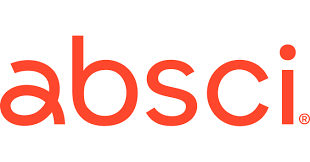























Increased data processing efficiency by 40% through optimization of ETL pipelines
Reduced cloud computing costs by 25% by implementing serverless architecture
Collaborated with cross-functional teams to align data infrastructure with business objectives
Aisha led the migration of legacy data systems to a modern cloud-based platform. She designed and implemented a scalable data lake solution, enabling real-time analytics for the marketing team. The project resulted in a 50% reduction in data retrieval time and improved data accuracy by 30%.
Developed and maintained over 50 data pipelines processing 5TB of data daily
Improved data quality by implementing automated data validation, reducing errors by 75%
Mentored junior data engineers, fostering a culture of knowledge sharing and best practices
Marcus spearheaded the development of a real-time fraud detection system. He integrated machine learning models into the data pipeline, enabling instant analysis of transaction data. The system successfully identified and prevented fraudulent activities, saving the company an estimated $2 million annually.
Architected a distributed data processing system capable of handling 1 million events per second
Reduced data retrieval latency by 60% through implementation of caching mechanisms
Led the adoption of DataOps practices, improving team productivity and code quality
Sophia designed and implemented a data governance framework for a large financial institution. She established data lineage tracking, implemented role-based access controls, and created comprehensive data documentation. This project ensured regulatory compliance and improved data trustworthiness across the organization.
Optimized database queries, resulting in a 70% reduction in average query execution time
Implemented data encryption and masking techniques, ensuring 100% compliance with data privacy regulations
Pioneered the use of graph databases for complex relationship analysis in customer data
Rahul developed a predictive maintenance system for a manufacturing company. He integrated IoT sensor data with historical maintenance records, creating a machine learning model to predict equipment failures. The system reduced unplanned downtime by 35% and maintenance costs by 20%.
Designed and implemented a data lake solution, increasing data accessibility by 200%
Reduced data integration time for new sources by 50% through development of reusable components
Championed the adoption of data version control, enhancing reproducibility of data analyses
Elena led the creation of a customer 360 data platform. She integrated data from multiple sources, including CRM, website interactions, and social media, to create comprehensive customer profiles. This project enabled personalized marketing campaigns, resulting in a 25% increase in customer engagement and a 15% boost in sales conversion rates.
With our extensive candidate network and dynamic team search approach, Redfish recruiters can greatly reduce your time to hire compared to in-house hiring processes.
Redfish recruiters handle every step of the process, including finding talent, screening candidates, scheduling interviews, conducting reference checks, and negotiating the offer, freeing up your in-house HR staff to focus on their other responsibilities.
We form the same in-depth relationships with clients that we establish with candidates, taking the time to fully understand your company and needs and giving each client a single point of contact for all communications.
We understand the roles we recruit for inside and out, whether that’s the technical jargon familiar to engineers and programmers or the skills that make an exceptional sales or marketing hire. When we send along a candidate, you can trust they have what it takes to excel.
With 20+ years in the recruiting industry, Redfish Technology has built an extensive network of connections and candidates, and our reputation precedes us. We’re a recruiting firm top talent wants to work with, giving you access to better talent than you’ll find from other services.




Key technical skills include proficiency in SQL, Python or Scala, experience with big data technologies like Hadoop and Spark, and familiarity with cloud platforms such as AWS, Azure, or Google Cloud.
While helpful, a computer science degree isn’t mandatory. Many successful Data Engineers have backgrounds in mathematics, statistics, or related fields. Focus on their practical skills and experience with data systems.
Data Engineers primarily focus on designing, building, and maintaining data pipelines and infrastructure. Data Scientists, on the other hand, analyze data to derive insights and build predictive models.
Ask about their experience with distributed computing systems, data processing frameworks, and how they’ve optimized data pipelines for efficiency. Request examples of projects involving terabytes or petabytes of data.
Important soft skills include problem-solving, communication, teamwork, and the ability to explain complex technical concepts to non-technical stakeholders.
Inquire about their experience with data encryption, access controls, and compliance standards like GDPR or HIPAA. Ask for examples of how they’ve implemented security measures in previous roles.
Ask about their experience designing and implementing ETL processes, tools they’ve used, and how they’ve handled challenges like data quality issues or system integration problems.
Cloud computing experience is increasingly crucial. Look for familiarity with major cloud platforms and their data services, as many organizations are moving their data infrastructure to the cloud.
Database design is a core skill. Look for candidates who understand both relational and NoSQL database systems, can optimize database performance, and design schemas that balance efficiency and scalability.